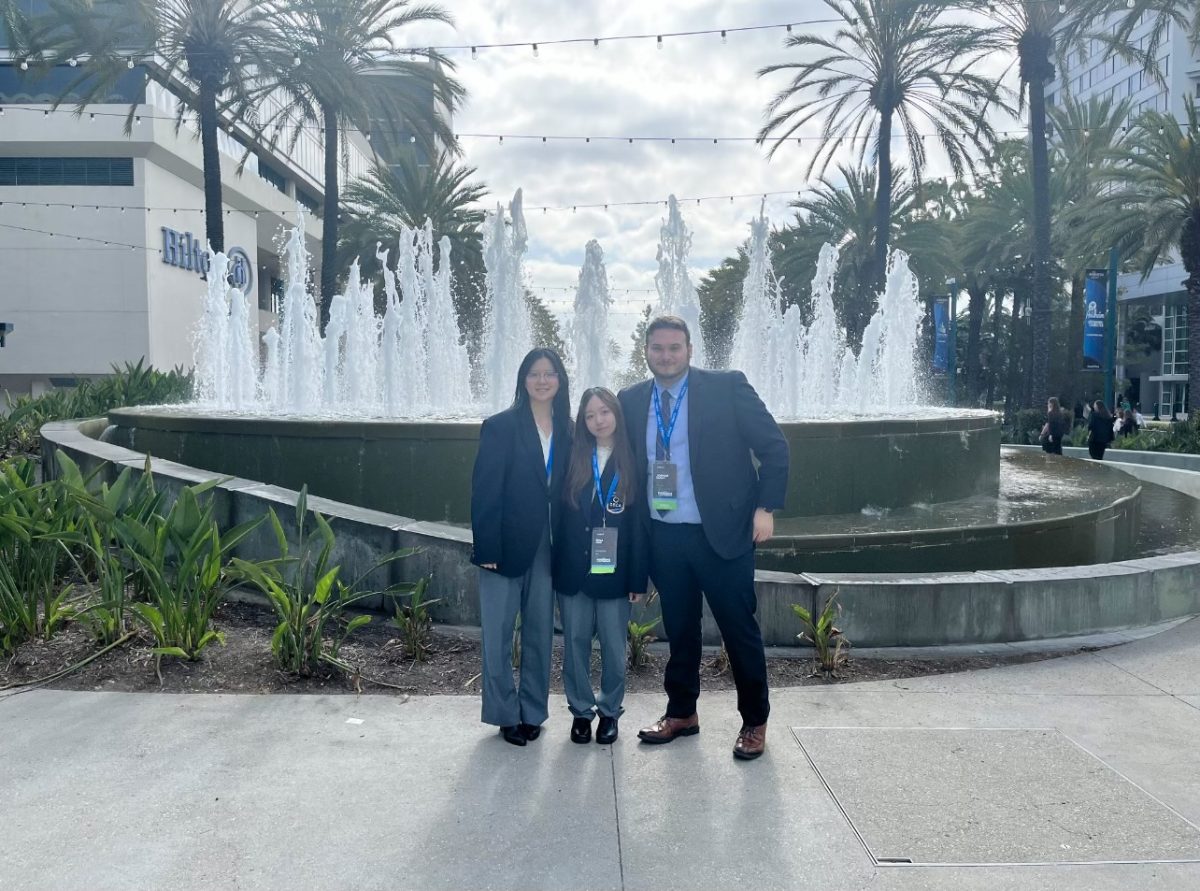
From April 27 to April 30, the THHS DECA Club, a chapter of the national Distributive Education Clubs of America, competed internationally in one of four DECA International Career Development Conferences (ICDC) in Anaheim, California. The club recently attended the national competition, hosted in Rochester, New York, where two students, juniors Rina Chen and Joline Tung, advanced to the international competition. This was the club’s first year at THHS, and their first year sending students to the international level.
Qualifying for the international competition required several steps. Rina and Joline scored first for Travel and Tourism Team Decision Making (TTDM) in districts (hosted in Long Island City, NY), where they then continued to states (hosted in Rochester, NY). There, they scored in the top 5 teams out of 40 to 50 teams in their section. DECA publishes extensive practice on their website for students to practice before any of their district, national, and international competitions. Joline said that these practices helped her “speak clearly and really improved our presentation and improvisation skills.”
At the international competition, before presenting in front of the judge and after the opening ceremony, participants were required to take a 100-question multiple choice exam. From there, eliminations began. Participants that qualified began their first roleplays in a group of 19 to 20 people, of which there are 20 groups. After, they advanced to second roleplay, which is where winners were determined and announced at a closing ceremony.
“It’s not necessarily public speaking, but a relaxed presentation where you utilize everything you’ve learned and practiced thus far,” said Rina, about the competition itself. In the second role play, students presented research and case studies about failing businesses in a room with one judge present, who is not permitted to interact with them or their presentation. They are graded against a rubric. “A lot of it is on the spot,” and students must train their improvisation in order to be successful, she said.
Rina, who did not have prior interest in the business field until she joined DECA, felt that the conference was incredibly transformative. “I met so many amazing people, and had some wonderful experiences,” she said. She hoped to continue participating in DECA conferences in the future.
Joline was similarly surprised by her motivation for succeeding in the club after seeing it in a TikTok prior to joining, but unlike Rina, she plans to major in business in the future. Although regularly homesick, she took all challenges instead. “Me and my partner Rina both thought we wouldn’t even make it to states, but when we did, we were fueled with motivation to move onto internationals,” Joline said. “It was an amazing experience. I hope next year more people will make it.”
DECA Club Advisor Joshua Krinsky believed this competition marked a promising beginning for the new club. “This is our first year having DECA and doing all three of these competitions […]. I met with advisors from other clubs that were impressed that we made it this year,” he said.
DECA co-president Anila Tinaj agreed: “Our students went up against the best of the best, many of whom have been competing for years now. For even two of our students to have qualified for states is amazing considering it’s our first year for the club. We are all so proud they were able to get so far with it being their first year.”
With these successes, the club will continue to expand and improve. “Our goals for this year are multifaceted. One of them was for students to successfully learn about and engage with different business sectors which I think we do through the competitions. We will probably do weekly meetings and do some business pitches or other activities,” said Mr. Krinsky.
One goal for the club’s second year is fundraising for these competitions. Mr. Krinsky said, “We also need to start [fundraising] for next year. The one part of the club that I wish was better was how expensive the trips were.”
The five-day trip hosted 23,000 students, staff, and presenters and an array of events, from mini golf and escape rooms to college and career fairs. A pin-trading activity also encouraged students to network with other attendees by having them collect pins that denoted another student’s place of origin.




























